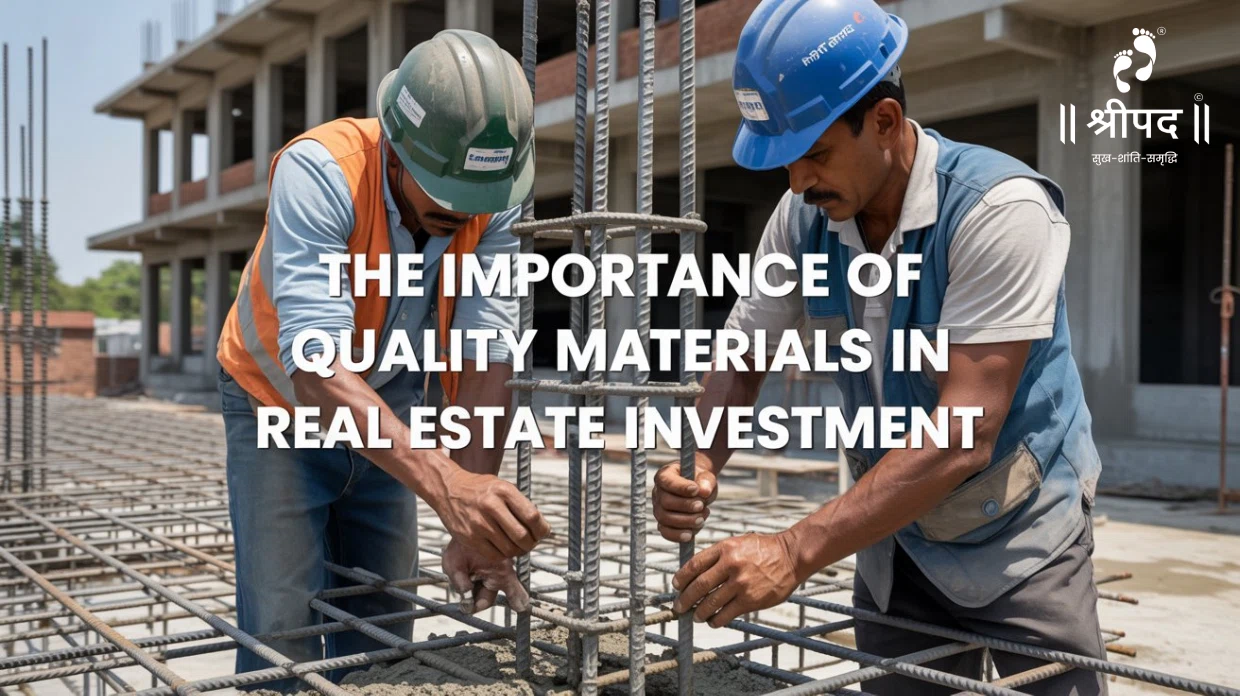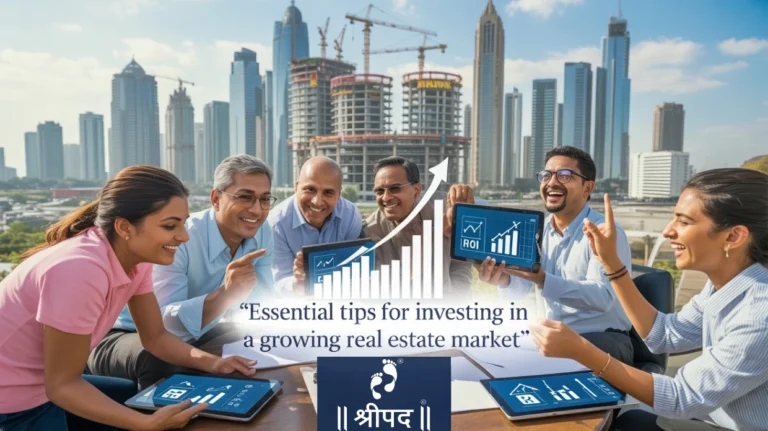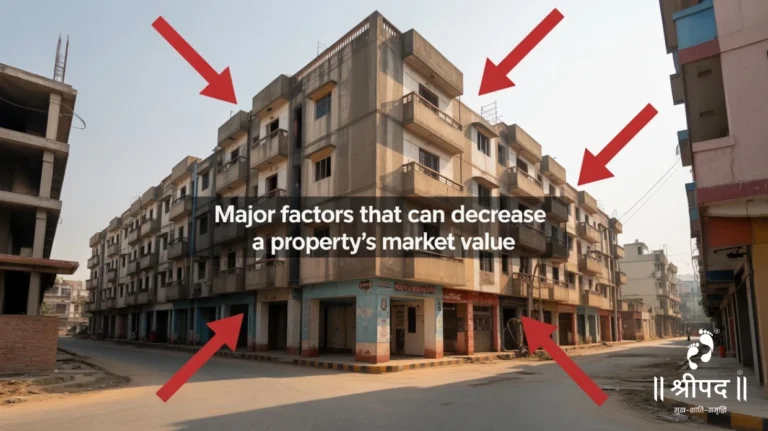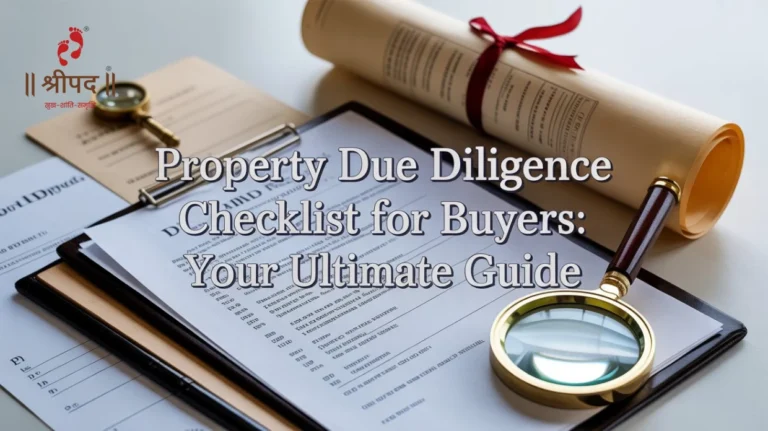- SHREEPAD GROUP
-
+91 83476 68000

In the real estate sector, one factor that significantly influences the value and longevity of any property is the quality of materials used during construction. Whether it’s a residential home, a commercial complex, or a mixed-use project, the choice of materials directly affects durability, safety, maintenance, and overall appeal. Understanding the key characteristics of a high-quality property can help investors make informed decisions that pay off in the long term.
For decades, investors primarily focused on location and design when evaluating real estate. However, in the modern market, discerning buyers and tenants increasingly consider the standard of materials used. High-quality construction materials not only ensure structural strength but also enhance long-term returns on investment.
In this article, we’ll discuss why premium materials are vital for real estate success, how they impact profitability, and what investors should look out for before committing their money.
Strong Foundations Lead to Long-Lasting Durability
The backbone of any property lies in its structural stability. Buildings crafted with superior-quality materials are far more resistant to aging, climatic challenges, and external forces such as earthquakes or storms. On the other hand, low-grade materials may cut initial costs but eventually compromise the property’s strength and lifespan.
For example, using high-grade cement results in a sturdier base, while top-quality steel reinforcement provides better resilience against seismic activity. Similarly, reliable windows, flooring, and fittings last longer and demand fewer replacements.
Durability doesn’t just mean safety—it also builds confidence among buyers and tenants, making the property a more secure investment.
Improved Resale Value and Higher Returns
Investors are not only looking at present benefits but also considering how the property will perform in the future. Projects built with premium-grade materials consistently achieve higher resale prices. Prospective buyers are willing to pay more when they’re assured of enduring quality.
For instance, installing robust countertops in kitchens, durable flooring, and energy-saving fixtures not only attract buyers but also lead to higher rental income. Over time, these features create a strong selling point in competitive markets.
Simply put, prioritizing quality materials is a smart way of ensuring long-term financial appreciation.
Reduced Maintenance and Repair Costs
One of the most overlooked advantages of premium construction is the significant reduction in maintenance expenses. Properties built with inferior materials frequently face problems like water leakage, dampness, corrosion, or wiring faults. These recurring repairs cost money and disrupt residents’ comfort.
By contrast, properties developed with durable materials experience fewer breakdowns. For example:
- Waterproofing solutions prevent seepage.
- Anti-rust steel reinforcement increases life expectancy.
- High-grade plumbing reduces the chances of leaks and blockages.
As a result, investors enjoy lower upkeep costs, which translates to higher net returns over time.
Enhancing Visual Appeal
First impressions play a crucial role in property decisions. Premium-quality materials add elegance and class to the design of any building. From polished flooring and attractive wall finishes to sturdy wooden doors and large glass windows, superior materials elevate aesthetics.
A finely finished property reflects the builder’s attention to detail and professionalism, which immediately resonates with buyers. In today’s market, where buyers are spoilt for choice, the visual appeal created by quality construction can be a deciding factor. This is why carefully identifying cheap finishes in a property can protect investors from projects that only look good on the surface but fail to deliver durability in the long run.
Safety Standards and Legal Compliance
Safety is one aspect of real estate that cannot be compromised. Poor construction materials increase the risk of structural collapse, electrical hazards, and water-related damage. On the contrary, builders who use approved, high-quality materials meet safety codes and industry regulations, ensuring peace of mind for buyers.
From an investor’s perspective, compliance with safety norms reduces the chance of future disputes, legal penalties, or loss of credibility. Above all, a safe and reliable property strengthens buyer trust, making it easier to rent or sell.
Eco-Friendly and Sustainable Choices
Sustainability is no longer just a buzzword—it’s a necessity. Environmentally friendly construction materials such as energy-efficient glass, non-toxic paints, and recycled wood are gaining importance. These not only reduce environmental impact but also lower energy consumption, making the property cost-effective in the long run.
Green-certified properties are in high demand, particularly among modern buyers who are conscious of their ecological footprint. Investors who choose sustainable projects benefit from greater market appeal and higher resale potential.
Building Trust Through Tangible Quality
Quality doesn’t only impact a property’s physical performance; it also influences the perception of buyers and tenants. A building that feels strong, well-constructed, and premium gives people confidence that their investment is secure.
In contrast, properties with visible flaws such as uneven flooring, cracked tiles, or leaking pipes cast doubt on the overall integrity of the project. By ensuring tangible quality through superior materials, builders and investors alike win long-term trust.
Reputation of the Builder
For builders and developers, material choices directly affect their brand reputation. Cutting corners with substandard resources might lower short-term costs but often leads to long-term damage—both to the property and the builder’s credibility.
Reputed builders, however, prioritize quality at every stage. This consistency builds a positive image in the market, creating a loyal customer base that trusts them for future projects as well. Over time, a strong reputation in quality construction becomes a competitive advantage.
Real-World Example: A Tale of Two Properties
Let’s compare two hypothetical projects:
- Property A: Constructed using cheaper materials to minimize costs. Within a few years, cracks begin to appear, water leakage becomes common, and paint starts peeling. Buyers lose interest, and tenants begin to complain. Resale prices drop significantly.
- Property B: Built with high-quality cement, steel, and finishes. Even after a decade, it remains sturdy and visually appealing. Buyers are willing to pay a premium, and rental income remains stable.
The lesson is clear: upfront savings on cheap materials are quickly outweighed by long-term losses, while quality construction guarantees steady returns and market demand.
How to Assess Material Quality as an Investor
Investors often ask how they can be certain about the quality of materials used in a project. Here are a few practical tips:
- Research the Developer – Choose builders with a strong reputation for quality construction.
- Request Material Details – Ask for specifications and brands of materials used.
- Inspect Sample Units – Visit model flats or previous projects to assess finishes.
- Consult Professionals – Structural engineers or independent auditors can verify quality.
- Look for Certifications – Projects with ISO or green building certifications are more reliable.
By taking these steps, investors can safeguard their capital and ensure their property remains valuable for years to come.
Why Trusted Builders Make All the Difference
Ultimately, it is the builder’s philosophy that determines whether quality materials are used. Developers committed to excellence prioritize durable and sustainable materials, even if costs are slightly higher. This dedication ensures not only long-lasting structures but also satisfied customers.
Investors should always partner with builders who value trust and transparency. Working with reputable developers minimizes risks and guarantees that your investment is protected.
Conclusion: Quality Equals Smart Investment
Real estate is more than just land and walls—it’s an asset designed to last for decades. But the true worth of that asset depends on what goes into building it. Quality materials define every element of real estate: from strength, safety, and design, to resale value, sustainability, and reputation.
For investors, compromising on material quality is never a wise decision. Aligning with builders who emphasize superior resources ensures your investment retains its value and continues to grow over time.
If you’re looking for real estate projects that combine architectural beauty, lasting strength, and long-term returns, choosing a reliable builder is the key.
Shreepad Group, a renowned real estate builder in Surat, has established a reputation for using top-quality materials and delivering projects that stand the test of time. Every development reflects precision, safety, and unmatched craftsmanship, making them an excellent choice for investors and homeowners alike.
When it comes to securing your investment with superior quality, Shreepad Group is the partner you can trust.
See Related News & Insights Blog

09.10.2025
How to Select the Right Property Type to Suit Your Needs
Purchasing a property is one of the most important financial decisions you can make. Whether it’s your first home, an...

09.10.2025
Essential Tips for Investing in a Growing Real Estate Market
Investing in real estate can be one of the smartest financial decisions when approached with knowledge and strategy. A thriving...

09.10.2025
Major Factors That Can Decrease a Property’s Market Value
In the real estate world, property value is more than just a number — it reflects the strength of your...

09.10.2025
Property Due Diligence Checklist for Buyers: Your Ultimate Guide
Purchasing a property is one of the biggest investments in life. Whether it’s a residential apartment, a commercial space, or...
